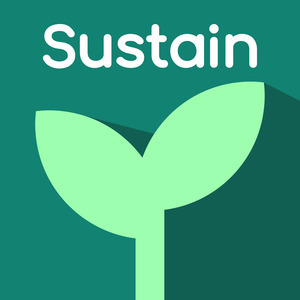Episode 141
Melissa Mendonça on being a Developer Experience Engineer for scientific OSS
October 7th, 2022
44 mins 58 secs
About this Episode
Guest
Melissa Mendonça
Panelists
Richard Littauer | Amanda Casari
Show Notes
Hello and welcome to Sustain! The podcast where we talk about sustaining open source for the long haul. Today, we are so excited to have a wonderful guest, Melissa Mendonça, joining us. Melissa is a Senior Developer Experience Engineer at Quansight, where she focuses more on developer experience and contributor experience. Today, we’ll hear all about Quansight and the focus for Melissa’s role as a Developer Experience Engineer. Melissa tells us about a grant they are working on with CZI that focuses on NumPy, SciPy, Matplotlib, and pandas, she shares several ideas on what can be done to make people feel seen and heard, and we hear her thoughts on what the future of community management and community development looks like for people entering the role of these projects. Go ahead and download this episode now to hear more!
[00:01:25] Melissa tells us her background and her role at Quansight.
[00:03:41] When Melissa made the decision to switch from one role to another, Amanda asks if that was her plan or if she learned that the skills that she needed to get things done changed over time.
[00:06:10] We find out what the focus is for Melissa’s role as a Developer Experience Engineer and what she does on a day-to-day basis.
[00:08:43] As Melissa was talking about her projects that they work on at Quansight, Amanda wonders if that’s the majority of her portfolio, or if she works across different kinds of projects. We learn about the current grant they are working on with CZI that focuses on NumPy, SciPy, Matplotlib, and pandas.
[00:13:18] We learn about the funding model and how sustainable it is.
[00:16:20] Melissa shares some great ideas on how we can put more effort into making people feel seen and heard.
[00:19:26] Melissa details some things she learned with the open source projects and things she recommends for others with large established projects.
[00:22:44] Amanda talks about a 2020 paper that was released in nature called “Array programming with NumPy,” and Melissa gives us her perspective on what happened with the community in 2020, if things have changed, and what needs to be addressed.
[00:27:09] Find out how CZI got involved with Melissa’s work, what their goals are, and how she’s changing in order to adapt towards those goals.
[00:31:32] Melissa shares her thoughts on what the future of community management and community development looks like for people who are entering the role for those projects.
[00:36:40] We hear more about Python Brasil 2022 that’s coming up.
[00:38:05] Find out where you can follow Melissa online and learn more about her work.
Quotes
[00:02:49] “Since Quansight is a company very focused on sustaining and helping maintain open source projects, we are trying to help new contributors, people who want to do the move from contributor to maintainer, understanding what that means, and how we can help them get there, and how we can help improve leadership in our open source projects.”
[00:11:53] “This is one of the barriers that we want to break, is that making sure that people understand that these are important, they are core projects in the scientific Python ecosystem, but at the same time they are projects just like any other.”
[00:12:17] “I think experience of working with projects that are so old and big has taught me a lot about the dynamics of how people work and how new people try to join these projects and how we can improve on that.”
[00:16:41] “We need to make sure that people who do contribution outside of code are credited and that they are valued inside open source projects.”
[00:18:20] “I think we should think about diversifying these paths for contribution, but for that we need to go beyond GitHub. We need to go beyond the current metrics that we have for open source, we need to go beyond the current credit system and reputation system that we have for open source contributions.”
[00:30:38] “Community managers are not second-class citizens.”
Spotlight
- [00:39:21 Amanda’s spotlight is a 2014 paper from MSR called, “The Promises and Perils of Mining GitHub.”
- [00:40:48] Richard’s spotlight is the book, Don’t Sleep, There Are Snakes, by Daniel Everett.
- [00:41:52] Melissa’s spotlights are Ralf Gommers and Scientific Python initiative.
Links
- SustainOSS
- SustainOSS Twitter
- SustainOSS Discourse
- podcast@sustainoss.org
- Richard Littauer Twitter
- Amanda Casari Twitter
- Melissa Mendonça Twitter
- Melissa Mendonça LinkedIn
- Melissa Mendonça GitHub
- Quansight
- Quansight Labs
- Quansight Lab Projects
- Quansight Labs Team
- Sustain Podcast-Episode 57: Mikeal Rogers on Building Communities, the Early Days of Node.js, and How to Stay a Coder for Life
- Sustain Podcast-Episode 85: Geoffrey Huntley and Sustaining OSS with Gitpod
- Advancing an inclusive culture in the scientific Python ecosystem (CZI grant for NumPy, SciPy, Matplotlib, and Pandas
- Sustain Podcast-Episode 79: Leah Silen on how NumFocus helps makes scientific code more sustainable
- NumPy
- SciPy
- Matplotlib
- pandas
- Sustain Podcast-Episode 64: Travis Oliphant and Russell Pekrul on NumPy, Anaconda, and giving back with FairOSS
- Tania Allard Twitter
- Array programming with NumPy (nature)
- Python Brasil 2022
- “The Promises and Perils of Mining GitHub,” by Eirini Kalliamvakou, Georgios Gousios, Kelly Blincoe, Leif Singer, Daniel M. German, Daniela Damian
- “The Promises and Perils of Mining GitHub,” by Eirini Kalliamvakou, Georgios Gousios, Kelly Blincoe, Leif Singer, Daniel M. German, Daniela Damian (ACM Digital Library)
- Daniel Everett (Wikipedia)
- Excerpt: ‘Don’t Sleep, There Are Snakes’ (npr)
- Ralf Gommers (GitHub)
- Scientific Python
Credits
Produced by Richard Littauer
Edited by Paul M. Bahr at Peachtree Sound
Show notes by DeAnn Bahr Peachtree Sound
